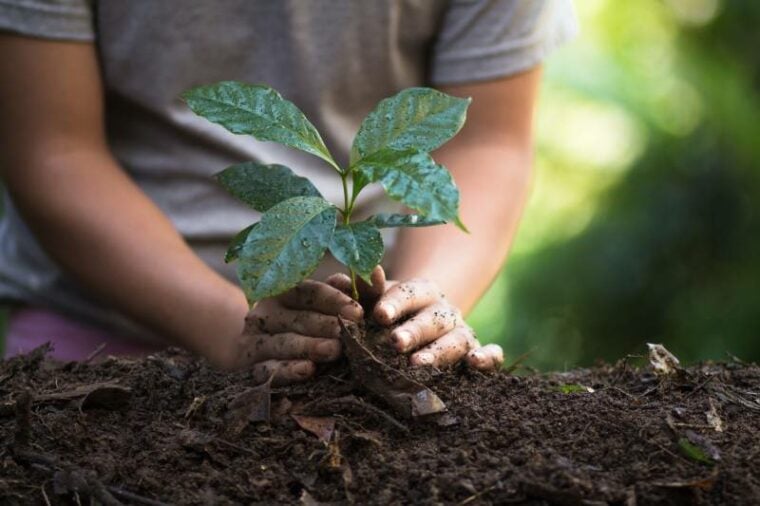
Click to Skip Ahead
As cat owners, we always want to ensure that our homes are safe for our feline friends. One common concern is whether certain plants, like coffee plants, are toxic to cats. In this article, we’ll explore the potential dangers of coffee plants for cats and provide information on how to keep your cat safe from toxic plants.
Coffee Plants and Cats: Understanding the Risks
According to the ASPCA, coffee trees are indeed toxic to cats 1. Coffee trees are mostly toxic to cats because they contain saponins, which are chemicals that can cause irritation to a cat’s skin and digestive system.
Caffeine is a stimulant found in coffee plants, particularly in the beans and leaves. It can be toxic to cats, as their bodies are not able to metabolize it as efficiently as humans can. Ingesting even small amounts of caffeine can lead to serious health issues for your cat.

Signs of Caffeine Toxicity in Cats
If your cat ingests parts of a coffee plant or consumes coffee grounds or beans, they may exhibit signs of toxicity from the saponins and caffeine.
In severe cases, caffeine toxicity can lead to seizures, coma, or even death.
Seek Immediate Veterinary Assistance
If you suspect your cat has ingested part of a coffee plant or is showing signs of caffeine toxicity, contact your veterinarian or an emergency animal clinic immediately. Early intervention is critical in minimizing the risk of severe complications.
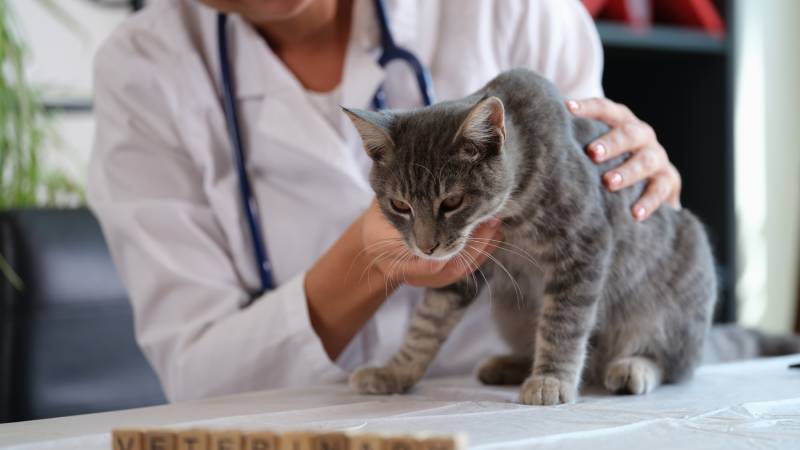
Induce Vomiting (When Advised)
In some cases, your veterinarian may recommend inducing vomiting to help remove any remaining parts of the plant from your cat’s stomach. However, do not attempt to induce vomiting without explicit veterinary guidance, as it can cause further harm if done incorrectly or in certain situations.
Veterinary Treatment
1. Activated Charcoal Administration
Your veterinarian may administer activated charcoal to your cat, which can help absorb any remaining caffeine or saponins in the gastrointestinal tract and reduce their absorption into the bloodstream. This can help minimize the severity and speed up recovery.

2. Intravenous Fluid Therapy
Intravenous (IV) fluid therapy is often used to treat cats with plant toxicity. IV fluids help to flush the toxins out of the system more quickly, maintain hydration, and support kidney function.
3. Symptomatic Treatment
Depending on the severity of your cat’s symptoms, your veterinarian may provide additional treatments to address specific issues. These may include medications to manage seizures, control heart rate, or alleviate gastrointestinal distress.
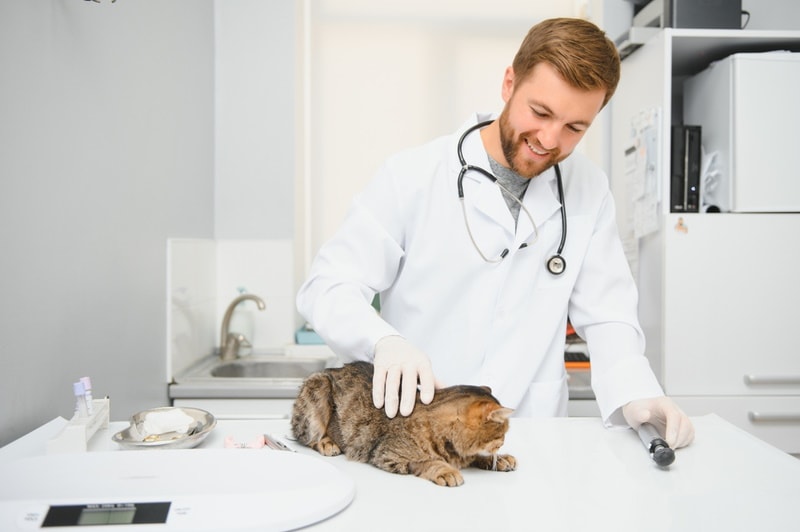
4. Monitoring and Supportive Care
Your veterinarian will closely monitor your cat throughout the treatment process, checking vital signs and ensuring that symptoms are being managed effectively. Supportive care, such as providing a quiet and comfortable environment, can help your cat recover more comfortably.
 Recovery and Aftercare
Recovery and Aftercare
Once your cat has been treated and is stable, your veterinarian may recommend continued monitoring at home. Keep a close eye on your cat’s behavior, appetite, and overall health, and report any concerning changes to your veterinarian.
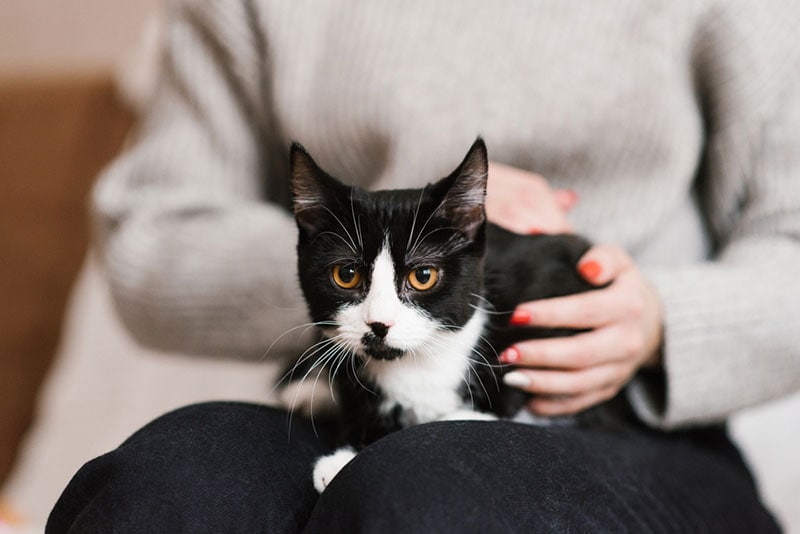
Keeping Your Cat Safe from Toxic Plants
Create a Cat-Friendly Environment
To protect your cat from potentially toxic plants, it’s essential to create a cat-friendly environment by only having non-toxic plants in your home. If you’re unsure about a specific plant’s safety, consult with your veterinarian or check resources like the ASPCA’s list of toxic and non-toxic plants.
Prevent Access to Coffee Plants and Products
If you have a coffee plant at home or store coffee grounds and beans, make sure they are out of reach of your cat. Keep plants on high shelves or in rooms where your cat cannot access them. Store coffee products in closed containers in cabinets or pantries.
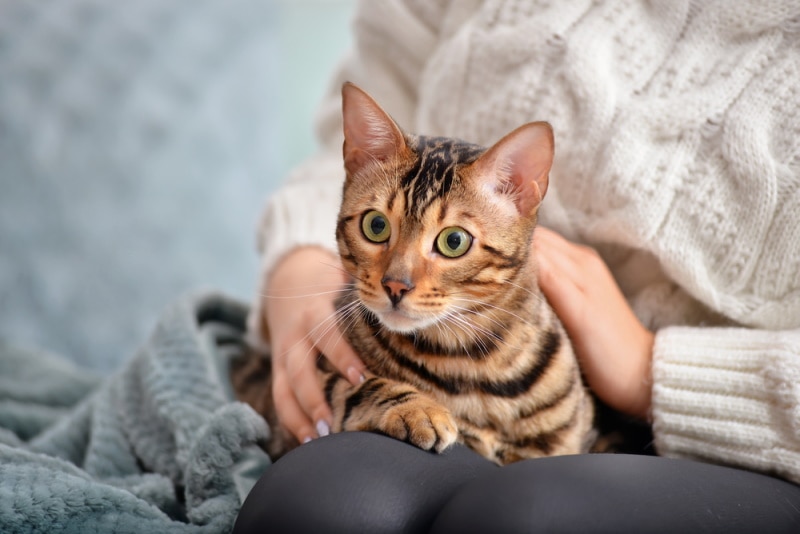
Safer Houseplant Alternatives
1. Spider Plant (Chlorophytum comosum)
The spider plant is an excellent choice for cat owners, as it is both non-toxic and easy to care for. This popular houseplant features long, arching leaves with green and white stripes, giving it an attractive appearance. Spider plants are also known for their air-purifying qualities, making them a healthy addition to your home.
2. Boston Fern (Nephrolepis exaltata)
Boston ferns are another safe option for households with cats. These lush, green plants have delicate, feathery fronds that can add a touch of elegance to any room. Boston ferns thrive in indirect light and high humidity, making them perfect for bathrooms or other areas with similar conditions.
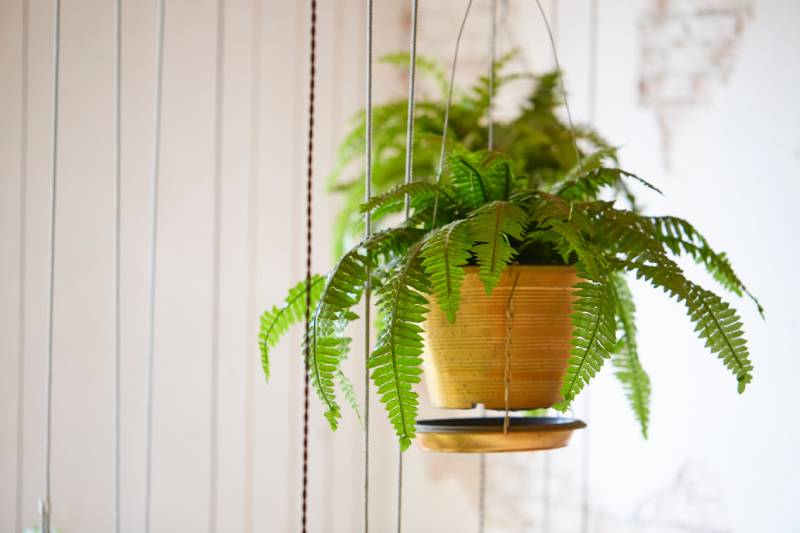
3. Areca Palm (Dypsis lutescens)
If you’re looking for a larger, cat-safe plant, the areca palm may be the ideal choice. This attractive palm has graceful, arching fronds and can grow up to 6 feet tall indoors. Areca palms prefer bright, indirect light and regular watering, making them relatively low maintenance.
4. Catnip (Nepeta cataria)
Catnip is not only a safe plant for cats but also one that many felines find irresistible. This perennial herb is a member of the mint family and can be grown both indoors and outdoors. Cats are often attracted to the scent of catnip and may enjoy rubbing against or chewing on the plant. However, it’s essential to monitor your cat’s interaction with catnip, as excessive consumption can lead to mild digestive upset.
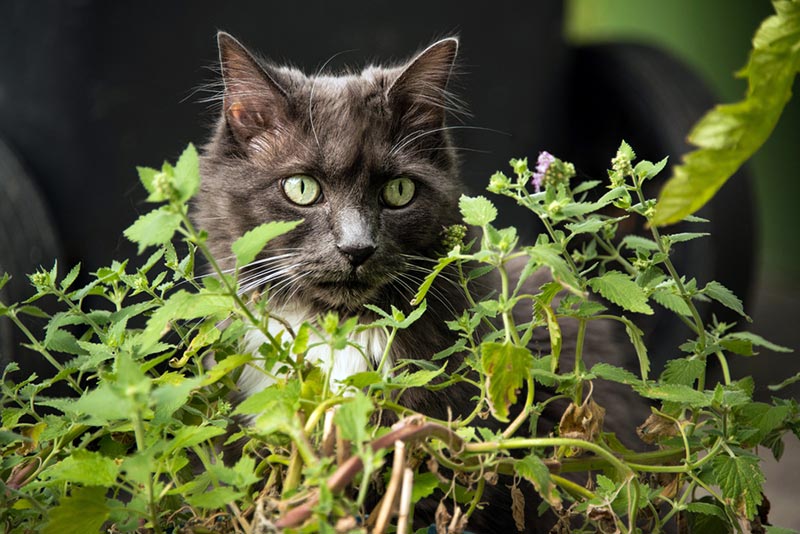
5. Cat Grass (Avena sativa)
Cat grass is another excellent option for cat owners, as it provides a safe and healthy outlet for your cat’s natural instinct to chew on plants. Cat grass is typically a mix of oat, wheat, barley, or rye seeds that can be easily grown indoors. Providing your cat with a pot of cat grass can help deter them from chewing on potentially toxic plants.
Conclusion
In summary, coffee plants and caffeine-containing products can be toxic to cats, posing serious health risks if ingested. To keep your cat safe, ensure that your home environment is free of toxic plants and store coffee products out of reach. By taking these precautions, you can help protect your feline friend’s health and well-being.
Featured Image Credit: RachenArt, Shutterstock







